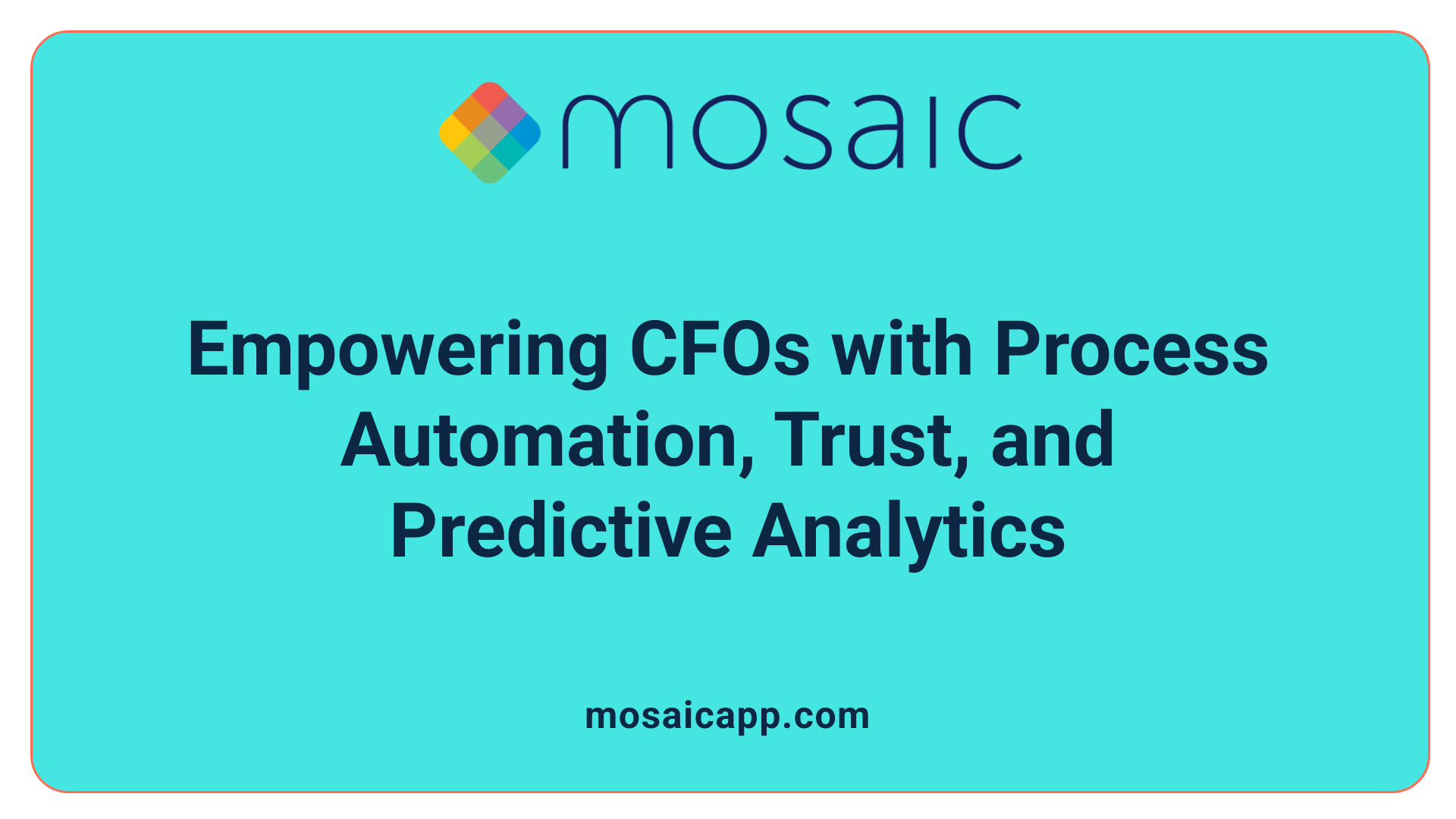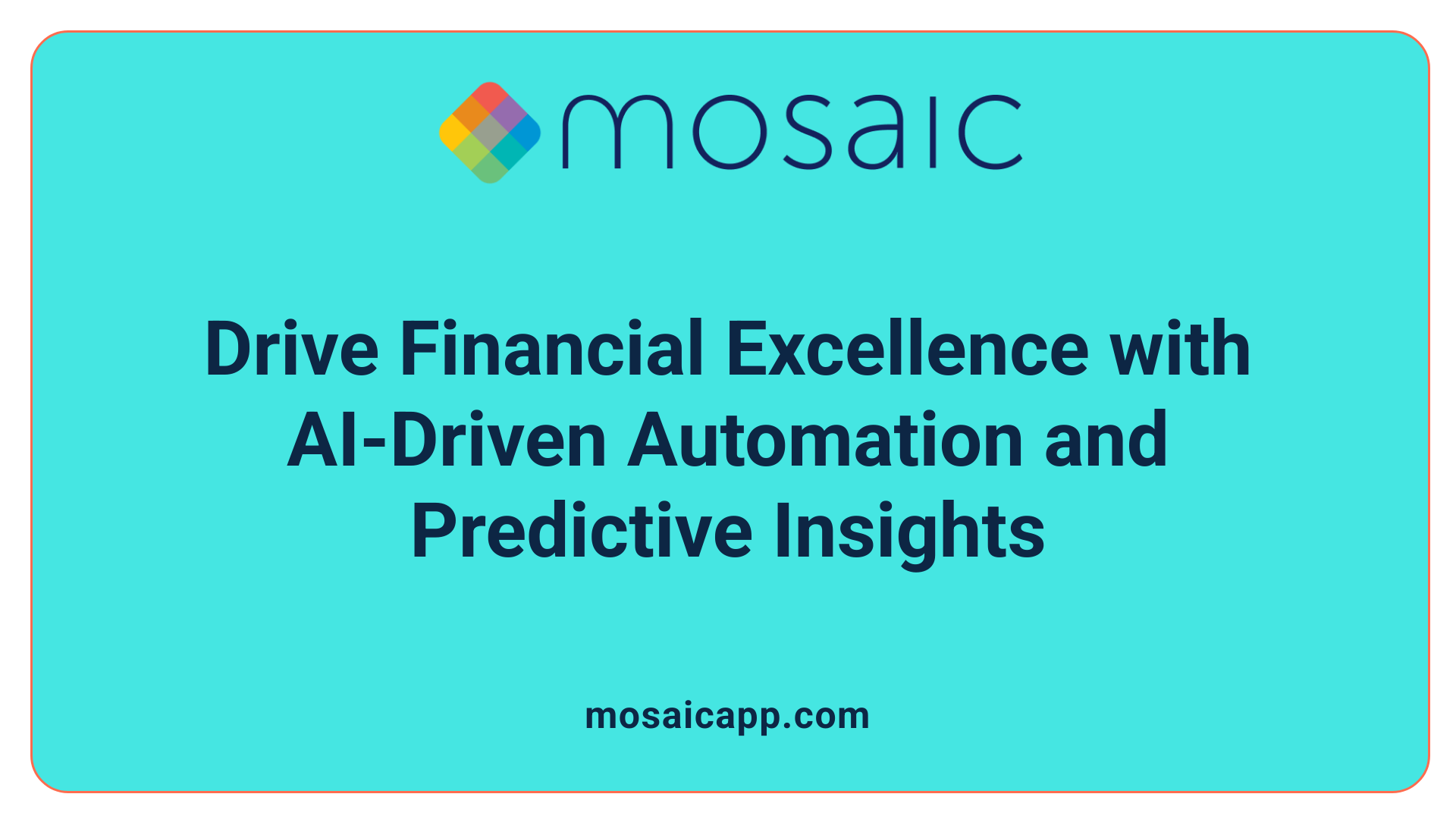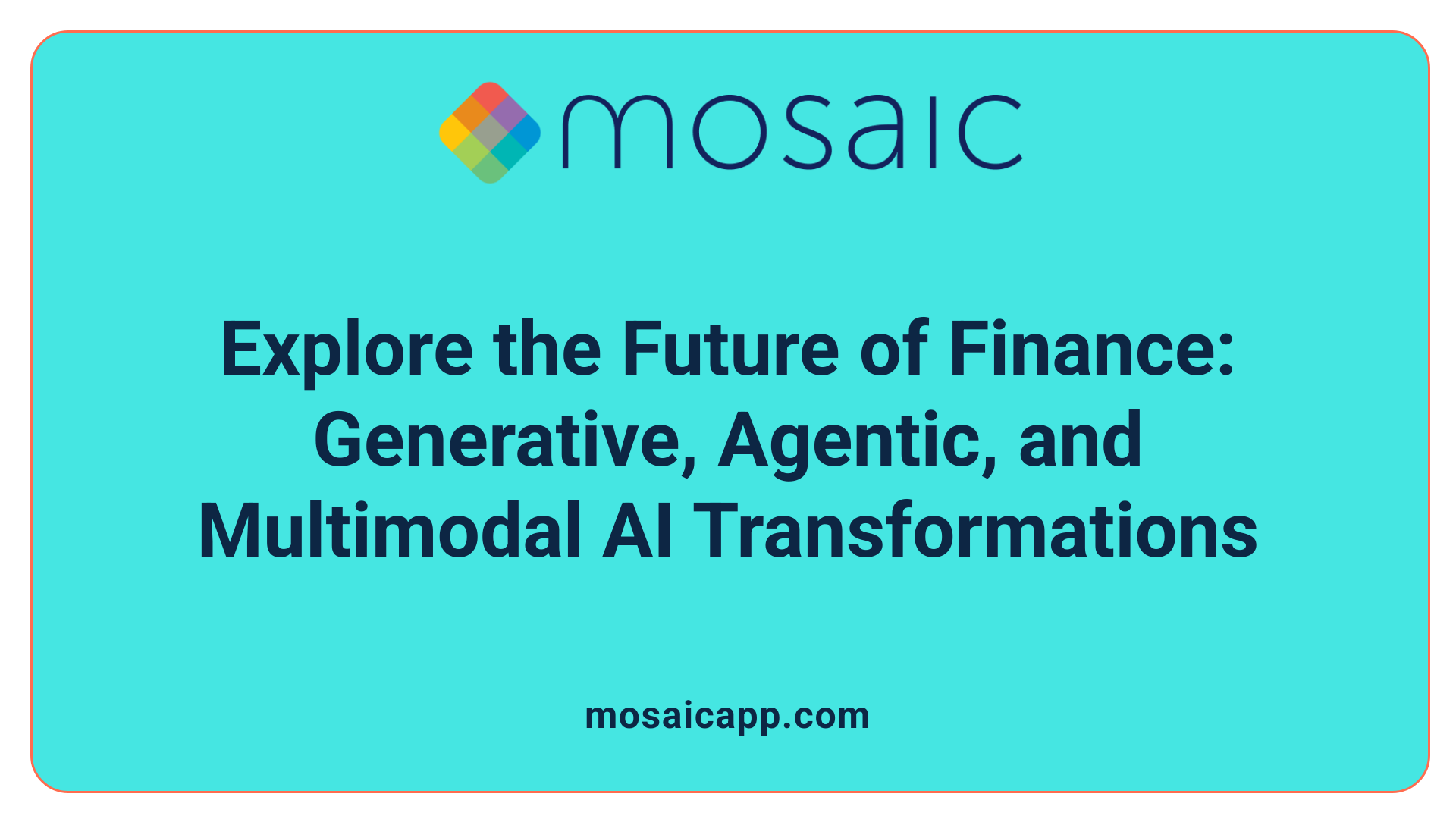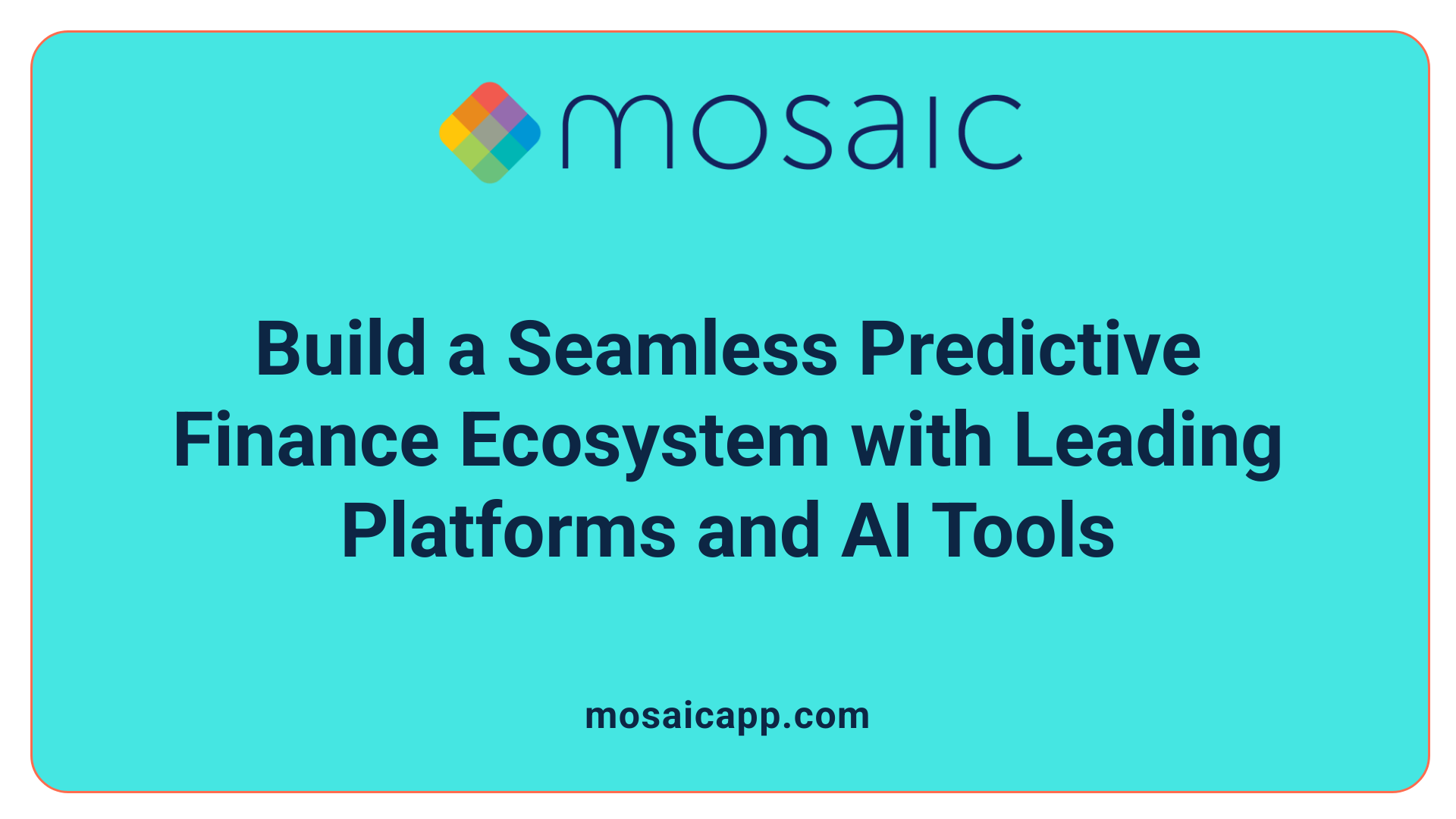The Transformation of Financial Leadership in an AI Era
As technological advancements redefine the financial landscape, CFOs are evolving from traditional record-keepers to strategic visionaries empowered by AI and predictive analytics. This shift promises unprecedented operational efficiency, enhanced decision-making, and new strategic opportunities. This article explores the pillars supporting this transformation and provides a comprehensive guide to navigating the future of finance.
The Three Pillars of CFO Transformation: Process Automation, Trust, and Predictive Finance

What are the key pillars supporting CFO transformation?
Michel Haesendonckx emphasizes three foundational elements driving modern CFOs’ evolution: process automation, trust, and predictive finance. Automation handles routine tasks more efficiently, allowing financial teams to focus on strategic initiatives. Trust ensures the integrity of AI systems through transparency and security, fostering confidence among stakeholders. Predictive finance offers foresight into future scenarios, enabling proactive decision-making that can optimize resources and reduce risks.
How does process automation benefit finance teams?
Automation is crucial in streamlining various financial operations. For instance, automating VAT reclaim processes or supply chain risk analysis eliminates manual errors and accelerates workflows. This not only increases operational efficiency but also ensures compliance with regulations. By reducing manual workload, finance professionals can dedicate more time to strategic planning, analysis, and decision support, ultimately adding greater value to their organizations.
Why is trust critical for AI adoption in finance?
Building trust in AI systems involves ensuring transparency, security, and proper human oversight. When finance teams understand how AI algorithms arrive at specific outputs, confidence in these tools grows. Examples like SAP’s validation solutions and the implementation of secure AI practices at firms such as TD Bank highlight the importance of trustworthy AI. Trust encourages widespread adoption of AI-driven processes, leading to greater efficiency and more reliable financial insights.
What is the significance of predictive finance for CFOs?
Predictive finance transforms traditional reactive models into proactive strategies. By leveraging AI for scenario modeling, CFOs can anticipate cash flow changes, revenue fluctuations, and potential risks. This forward-looking approach allows organizations to optimize marketing efforts, control costs, and mitigate risks before they materialize. As a result, predictive finance empowers CFOs to steer their companies with greater agility and confidence, positioning them as strategic partners within their organizations.
Harnessing Automation and Predictive Analytics for Financial Excellence

How does AI-driven automation enhance financial processes?
AI technology significantly streamlines financial workflows by automating routine tasks. This includes invoice processing, anomaly detection, and fraud prevention, which traditionally require manual oversight.
For instance, tools like DataSnipper’s AI-powered audit solutions have demonstrated a 40% reduction in manual errors, improving accuracy and compliance. Similarly, Vic.ai automates accounts payable processes, enabling faster month-end closes and reducing operational costs. These advancements not only elevate efficiency but also strengthen operational resilience by minimizing human error and enabling finance teams to focus on strategic initiatives.
What tools support real-time insights for CFOs?
Modern finance leaders utilize platforms such as Microsoft Dynamics 365, which consolidates data across sales, operations, and finance systems to deliver real-time financial visibility. Equipped with embedded dashboards powered by Power BI, CFOs gain instant access to critical metrics including cash flow, revenue trends, and compliance status.
This integrated approach allows for continuous monitoring and rapid response to financial shifts, empowering CFOs with actionable insights that promote agility and better decision-making.
In what ways does predictive forecasting influence decision-making?
Predictive analytics equips CFOs to proactively identify future risks and opportunities. By modeling scenarios for cash flow fluctuations, market risks, and revenue variability, finance leaders can make informed decisions quickly.
These advanced forecasting tools facilitate strategic planning, enabling firms to adapt swiftly to internal and external changes, ultimately supporting sustained growth and operational stability.
What are the benefits of automation in risk management and compliance?
Automation plays a crucial role in maintaining financial integrity by supporting continuous audit practices and compliance monitoring. Automating anomaly detection reduces the likelihood of fraud and errors, while automated regulatory reports streamline compliance efforts.
Solutions like SAP Datasphere and Vic.ai actively assist finance teams in adhering to regulatory standards, reducing audit risks, and improving data security. Overall, automation fosters a more controlled environment, ensuring accuracy and instilling trust in financial operations.
Emerging Trends and Future Directions in AI-Enhanced Finance

The landscape of financial management is rapidly evolving with emerging AI technologies shaping new strategies and operational models. Among these, generative AI and agentic AI are leading the charge, automating complex workflows and analyzing large volumes of unstructured data with minimal human intervention.
Generative AI, which can produce content and insights from data, is being used to streamline reporting processes, develop financial models, and enhance decision-making accuracy. Meanwhile, agentic AI systems are capable of autonomous decision-making, adjusting strategies based on real-time information, which enhances operational efficiency.
Another significant trend is the push toward financial inclusion. Fintech companies and financial institutions are leveraging alternative data sources—such as social media activity, utility payments, and mobile behaviors—to serve underserved markets and improve credit scoring accuracy.
Looking ahead, multimodal AI—integrating text, images, and sensor data—will transform customer engagement, offering personalized financial advice and real-time support. Assistive search tools powered by AI will help CFOs and finance teams access relevant insights quickly, improving decision speed and accuracy.
Future AI innovations are also expected to prioritize seamless customer experiences, advanced security, and automated compliance checks. As these tools become more sophisticated, strong governance frameworks will be essential to address ethical concerns, data privacy, and transparency.
For CFOs, these technological shifts mean a move from traditional oversight to strategic sponsorship of AI initiatives. They will need to manage ethical use, ensure responsible AI deployment, and harness AI insights to foster proactive financial planning. Embracing these innovations will empower finance leaders to stay competitive and agile in an increasingly digital world.
Integrating Technologies and Platforms for a Predictive Finance Ecosystem

Platforms like Microsoft Dynamics 365 and SAP S/4HANA are at the forefront of supporting the shift toward predictive finance. These systems enable seamless data management and comprehensive analytics, providing CFOs with real-time insights into financial health. Additionally, specialized AI tools like AlphaSense, Kavout, and Zest AI enhance capabilities by improving market analysis, risk assessment, and investment decisions. Emerging technologies such as natural language processing (NLP), machine learning (ML), and blockchain are further empowering finance teams to gain instantaneous, accurate insights.
These platforms significantly enhance CFO decision-making by offering real-time dashboards and unified data views. Automated compliance features ensure regulatory requirements are met consistently, reducing errors and audit risks. With immediate access to trustworthy data, CFOs can make informed strategic choices swiftly, supporting proactive management and agility.
Successful integration of these technologies requires attention to several critical factors. High data quality and security are paramount, ensuring sensitive financial information remains protected. Building scalable ai allows systems to grow with organizational needs, while clear governance frameworks help maintain control over data use and technology deployment. Continuous monitoring, along with comprehensive user training, maximizes platform effectiveness and drives adoption.
Overall, adopting and integrating these advanced technological solutions equips CFOs to lead with confidence in a rapidly evolving financial landscape, fostering a culture of innovation and resilience.
The Strategic Role of CFOs in an AI-Enabled Future
As artificial intelligence transforms the landscape of financial management, CFOs are increasingly stepping into strategic leadership roles. Their responsibilities extend beyond traditional financial oversight to include guiding AI-driven initiatives that enhance efficiency, accuracy, and insight.
The adoption of AI tools, such as automation solutions from Vic.ai and Dynamics 365, empowers CFOs to streamline processes like invoicing, reconciliations, and cash flow forecasting. These technologies also elevate financial visibility in real-time, supporting proactive decision-making.
However, with these advancements come new responsibilities. CFOs must navigate risks associated with AI, such as biases, hallucinations, and governance concerns. Building trust through transparent, explainable AI systems and implementing responsible oversight is essential to ensure ethical practices.
Strategic actions for CFOs include developing clear AI roadmaps, investing in the necessary talent and infrastructure, and fostering a culture that embraces continuous learning. They should also prioritize integrating AI with existing systems, deploying dashboards with tools like Power BI, and ensuring compliance with regulatory requirements.
Ultimately, CFOs who lead with a focus on ethical AI use and infrastructure investment can maintain a competitive edge. Their leadership fosters innovation, operational resilience, and data-driven insights that shape the future of financial management.
Aspect Key Considerations Examples Leadership Role Transitioning to strategic partners CFOs guiding AI initiatives and business strategy Risk and Ethics Managing bias, hallucinations, transparency Building trust with explainable AI; responsible governance Talent & Infrastructure Investing in skills, systems Implementing AI roadmaps, real-time data tools Strategic Actions Developing roadmaps, compliance, integration Using solutions like SAP Datasphere and Vic.ai’s automation Benefits Efficiency, visibility, compliance 20-30% productivity gains, operational resilience
Embracing the Future of Financial Leadership
The transition from reactive reporting to predictive finance marks a pivotal evolution in CFO responsibilities and capabilities. By leveraging advanced technologies like AI, machine learning, and integrated platforms such as Microsoft Dynamics 365, CFOs can achieve enhanced operational efficiency, proactive risk management, and strategic agility. The future belongs to those who prioritize trust, ethical use, and continuous innovation, transforming finance into a strategic lever for sustained growth and resilience.
References
- The CFO's New Playbook: How AI and Predictive Finance ...
- Building a Financial Insights Engine: A CFO's Playbook for AI ...
- The Dynamics 365 Playbook for CFOs Who Want Fewer ...
- AI for CFOs | Improve Financial Visibility & Automate AP
- How can CFOs use AI to improve forecasting and insights?
- How AI Is Shaping Predictive Analytics in Finance
- AI in Financial Planning: The CFO's Guide to Strategic ...
- AI for CFOs: A guide for accountants who support ...
- AI-Driven Forecasting and Scenario Planning: The CFO's ...
